

tourism
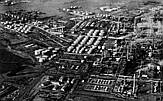
Isla oil refinery
don't forget to bring money!

fair warning to visitors
Even tourists would have been welcome.
Algernon Blackwood - The Willows
| Driving over Curaçao's pot-holed roads in your expensive rental car may make you wonder why the gasoline is so expensive. You will also enjoy the view of all that trash by the road, which you'll probably notice just gets thrown out of other cars' windows. Snorkeling will grant you the exquisite experience of beer cans and other rubbish on the sea bottom. Worst, several hotels (like those at Piscadera) are occasionally hit by the refinery smoke; even in downtown Willemstad you're not always safe from that pollution. |
Finally, most people are really nice and relaxed and our music swings!
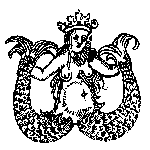
so what's wrong?
The main problem is that our Tourist BureauAs from 2017, CTB is called National Tourist Organization NTO, with even more power.
equals tourists (and their hosts) with Suckers
This is not your tropical island paradise, which is the way they try to sell the place. So people who do come are often disappointed, I guess. Anyway, tourism has never been a big hit here. When I was a kid and we relatively had a lot of cruise tourism, the general attitude was one of amused toleration towards the Americans who came here for shopping; the men carrying lots of packages with their wives trying to spot still more things to buy. We had practically no import duty then and especially things like jewelry and perfume were awfully cheap.
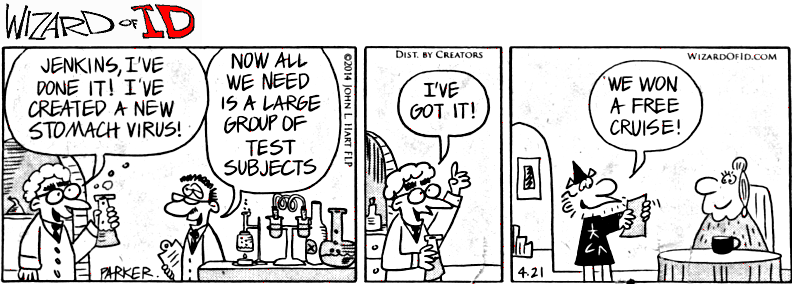
But we do have heavy duties to pay now, and so have the tourists, even in the so-called tax-free shops. This has not helped cruise visits to grow. And those wonderful cruises are so expensive that passengers take a bottle of water along when they leave their floating hotel, so they won't have to lay out cash to buy a soft drink on shore. After the building of a mega-pier to accommodate those giant cruise-ships cruises went up again, only to go down in 2002 with 35% compared with 2001. In 2003, down another 13%. There is still talk of building a second one; in tourism, it often does not matter if a project pays, as long as you get paid for building it. There is more to say on that subject.
| CTDF, Curaçao Tourism Development Foundation, is supposed to supervise Curaçao Tourist Board. It had two seats from the private sector, but the politicians reduced this to one, which enabled them to have one more political candidate on the board. CHATA [(private) Curaçao and Hotel Association] and other protests were ignored. The political sector then did not install any of the privately nominated candidates but instead selected yet another member of their own choice. This was under the notorious Ivar Asjes, but has been continued in 2006 by his successor Schotte. |
Our beaches are not of the flat white-sand eye-blinding type; you have to go to Aruba for that, or plenty of other places. Here, they mostly are rather intimate coves with a rocky or pebbly shore. We like them that way—skin divers couldn't care less, either. But what happens is that the beaches are artificially covered with a layer of sand, like in the Seaquarium which "the" tourist is supposed to like so much, but where I think the water is too filthy to touch. Next thing you can expect is that beach eroding and the sand slipping down, suffocating the coral reefs that, apart from more important functions, at least attract skin divers. This keeps going on; the sand is rebuilt (at a cost) and after the next storm, presto!
Tourism Statistics Curaçao Tourist Board CTB is a master in the tradition of turning statistics into lies. Some years ago they announced that, for a certain month, tourism from Brazil had gone up by 2000%; it turned out one (1) charter flight had come in and instead of 7 there had been 140 Brazilians here - in that month only. (You don't expect the following month it was announced tourism from Brazil had gone down by 2000%, do you?) These figures may not be exact, but close enough.
Antilleans living in Holland and coming home for christmas, like students, all count as tourists. In the xenophobic attitude to foreigners working here, they are all forced to leave every three months or so and then come in again. This insane bureaucratic rule again results in having moretourists.
Counting all these, in November 2004 205,000touristshad visited Curaçao that year. Wonder how much we have paid to CTB to get those here? With a yearly budget of ~25M, which they as a matter of course think too little, it works out at ~$40/per tourist - even if these, indeed, were all legit tourists. That budget is only for marketing - we have no way of knowing what more CTB consumes. It also does not include the extra money Holland gives away very year for US marketing since 9/11/2001.
When in 2005 Continental was guaranteed a 60% seat occupancy on their weekly flights Newark-Curaçao, we were not informed how much this would actually cost us. What we did get to hear was that, with an occupancy of 70% and every tourist spending $100/day, this wouldearnus 3.5M/year. As if all seats will be occupied by tourists, and as if we'd make a 100% profit on all they'd spend. CTB estimates our intelligence to be even lower than theirs; it's downright insulting.
Here are the figures CTB gave us on the first half year of 2006. They omitted to tell us how many actually came, some oversight! Anyway, we have done what CTB ought to have done in the first place: Put them in perspective so you can compare and draw your own conclusions for yourself. Just as if you were a thinking human being who wants to do that without politicans' propaganda put-out.
All this is based on as much as they deigned to tell us about the first 6 months of 2006, extrapolated.
Total nights 2005 1,959,263 2006 (+ 5%) 2,057,226 average stay, night 8.82 2006 (+ 7.7%) 9.5 expenditure 28,365,000 2006 (- 3%) 24,677,500 total tourists 1,021,130 Who Knows? expenditure per tourist US$283.65 let's assume (subtract $40 for CTB)
Count your profits, count 'em cent by cent: Each and every tourist spends less than $26/day.
In September 2006, CTB asked for 20M extra for more marketing over the next three years. It's not clear if this is 20M or, in reality, 60M. No matter: CHATA hotel and tourism association, more creditable as they pay their own way, is now claiming that in 2007 there's a steady increase, matching the general Caribbean trend. It's not to gloat to mention that in 2010 it's sure to hit a new depth; just goes to prove once again that tourism is a very unreliable base for your economy.
Hmmmm....
In September 2007 CTB announced tourism was really going up with over 15%. Too bad that, once again, there were no details. A search on their website gave detailed statistics 2005 which, however, stops with 2004 (and isn't around anymore). The 2006 enthusiasm just might have to do with the fact that a new budget was proposed to make more impact on the USA market: a rise of $40M. At the same time, a new PR bureau was hired for the USA, which caused Miami CTB manager Aimée Kleinmoedig to take her leave therefor reasons of integrity.
Ajó Hepple
The day after CTB director Hepple got so disgusted he announced his leave, CTB announced that business is bad all over with a growth of only 0.3% over the past year. They make a half-hearted attempt to blame the DCA-failure for this, but don't even manage to make their lies and half-truths convincing by any degree, even contradicting themselves.
But we're used to that.
In 2005 total tourism went down again with 1.2%. Naturally, the demise of DCA was blamed for that.
| Things Are Looking Up? |
| In July 2007, CTB announced that there has been a tourism growth of 12.4% since January. Impressive! If true - some details make us doubt. For once thing, growth over July alone is listed as 24.5%, and from Holland 1000 more (6800) than last year. According to CTB this is 16.4% more, but it really is even higher: 17.2%. You can't help wondering what's correct here, and thus, about what's correct in the rest. Even worse, tourism from Haïti is reported to go down; but 'tourism' from Haïti is a farce anyway; for the largest part these are illegal aliens who come to work here. Once again, is there any reason for us to trust this? Which is why we remain sceptical on the final results, released in February 2008: Tourism has grown with 28%, cruise tourism with 6%. Depends on how you figure, you might as well say it's 'only' 22% - which still is a lot: 300,000 guests and 340,000 cruisers. CTB then claims these generated $722M, by spending $150/day and $50/day, which is assuming a lot. And, continues CTB, their yearly budget is $21; just doen't fit our info. All this doesn't go to deny there is some progress. |
Pink Paradise?
Irresponsible: That was the comment from several people about the efforts, renewed by PAR Rhuggenaath, to attract gays and lesbians to Curaçao as a Pink Paradise. While attitudes towards non-straights have become much more accepting in the past 25 years, not half a year ago PS Kleinmoedig was beaten up in his garden and denounced as a 'mariku' (still one of the most abusive terms in Papiamentu.) And it's only three weeks since FOL Godett, in a session of the eilandsraad, started a vulgar torrent of abuse directed at PS Wiels, using the terms 'a goat' and 'Sodom and Gomorrha', which resulted in the opposition leaving the meeting in protest. Worst, reportedly the coalition, including Rhuggenaath, was visibly enjoying Godett's tirade and snickering over it. 2007-10-07 |
What's in it for us?

— A project developer buys a beach and puts up a hotel; result is the locals can't go and swim there any more.
There's an old law that the seashore of Curaçao is accessible to anybody from the sea, which the hotels don't like very much. Trade unionist Ong-A-Kwie (†2002) at the age of 70 swam ashore at the Princess Beach Hotel. A guard ordered him to leave, which he refused; he was then manacled by two guards, after which he lodged a complaint for duress, but no action was taken. He then started civil proceedings and lost.
— Hotels routinely don't pay their energy and water bills; result is we pay for that.
— There are bumper stickers "It's a crime to rob a tourist!" — presumably more of a crime than to rob a fellow citizen.
— If a project does not make the money as per business plan, we are stuck with the bill.
— Hotel gardens and parks are, for the tourists' sake, laid out in the lush tropical Hawai'i style, which costs lots of water, which, again, we end up paying for.
— It used to be cheaper for a tourist to buy an airline ticket to Curaçao than for us to get away.
— About 7% (used to be 15 before the latest new, improved energy crisis) of the price for gasoline serves to finance tourism development.
Hotels, like other enterprises, often get a 10 year tax holiday, also on import duty for building materials and such. After the 10 years have elapsed, the hotel is sold to another chain, and so on. So the 1970s Hilton Hotel is now back in the Hilton chain, after having changed names twice in between.
You may want to read more on this subject, but I'm getting nauseous. I thought the idea was for us to make some money from their visit; not to help them pay for it.
| Wising Up? |
| In June 2006, a proposal by our new tourism deputy Schotte on rehabilitation of 13 of our 21 public beaches reached the Island Council. Both coalition and opposition complained that nothing was left for the local population; that beaches became much too expensive; that everybody was pestered by loud music there. Restaurants and snacks appear on every beach to pay for exploitation, as well as paid parking lots; while others complain that there are no facilities like showers or sunshades. Local fishermen are afraid they will run into trouble as well - sooner, not later. Alcalá-Wallé fears for more erosion with intense use; may be only a small part of the problem, but she's the only one even thinking of that. The only real protest was heard from Unique Curaçao Foundation, which further remarks that the island is also unique in that over 70% of beaches and coast are not accessible to the public. (They omitted to mention that many others are only accessible by paying a rather hefty fee to Unique Curaçao, the leader of which used to have some fame as a well-known krakerfrom Amsterdam.) Not much later the fishermen, who are afraid they'll have to start paying for access to their boats, joined the protests with conservation institute Amigu di Tera [Friends of the Earth]. The proposal was accepted, coalition for, opposition against. That's just politics, folks: Once again, Rignald Lak blackmailed the coalition into voting For. |
Warning to Visitors
Our tourist paradise now has one of the highest rates of assaults and rapes in the world.
No one is ever safe here.
With the enormous number of crooks driving around, watch it!
Don't give them the finger when they behave in an obnoxious way on the road - you may get killed.
Don't overtake them - you may get killed.
Don't even look at them too closely - you may get killed.
By end 2004, we have 1 traffic victim and 1 murder per week with 3 armed robberies a day. In 2006, there wasonlyone murder a month in about 450 assaults (half of 2005) of which 28% were solved by police.
In 2007, car rental companies announced that all damages to cars parked at Mambo Beach (next to the Seaquarium) are completely at customer's own risk, after many cars, or contents, had been stolen from there. Security at Mambo is virtually non-existent.
Enjoy your stay!
traffic tips

It worked like this and, for all I know, may still do so: When you wanted to open a new hotel, or started a project like a golf course (using up all our expensive recycled sewage water), you applied for and got a government guarantee. So who cared if the hotel never earned money? The developer had made his pile long since. Naturally, everybody went through the motions of business plans. I have worked with these myself and those spreadsheets are only too easily turned into nothing but a big con. But who cares? The politicians supplied the money which we provided, and surely have often taken their cut in the first place.
The hotels used to work like this: The government financed and opened a hotel. Once that hotel started to make a profit, the government sold it to whatever chain was running it. I guess it comes as no great surprise that many never started making money.
Another hotel was, immediately after complete renovation, sold to the Dutch Van der Valk hotel group for less than the renovation had cost. If you smell a faint whiff of corruption here, who am I to blame you?
When the Marriott hotel was built, the government participated with a guarantee of ANG56M. One quarter of that sum has been stolen: By 2006, there was talk of selling the hotel - for the grand sum of ANG40M. What else happened to those ANG16M, never mind 10 to 20 years of inflation? And now a guy Halabi wants to borrow $25M from the government for a new hotel - there we go again.
The hotels which have been built without subsidy are doing well, thank you very much. A mere coincidence?
| So What's in a Name? |
| In September 2005 CTB proudly announced that they had finally acquired the www.curacao.com domain name. Now we would all be striking it rich! Trouble is, this domain name was in use before. Among other institutions, Nationaal Archeologisch and Anthropologisch Museum NAAM had a website there. CTB did not even take the trouble to warn them about this or at the very least temporarily harbor their site, let alone give them a chance to move it in time. It took NAAM over a month to get back on line - and at their same old address, too. So what was the problem? CTB just didn't care. |

Holy Cow!
J. Voerman Jr.
Verkade Album De Boerderij
Tourism has been a sacred cow since our Wise Leaders decided in 1995 (just a whim) that this was to be our future economic activity. Better not say anything against it (even as I intrepidly do). Check out the Seaquarium as just one example; it also runs a 'dolphin academy'.

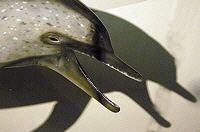
cute dolphin from South Africa

Coral Reefs
As the coral reefs are a prime tourist attraction, here and for Bonaire island, their conservation should be a top priority.
In practice, however, it is not. The at first sight homeopathic amounts of sun-tan lotion that are shed by swimming visitors seem to be enough to poison coral reefs. Read here how our state-owned electrical company is fooling around with a Curaçao underwater park.
The much-practiced method of building up our cozy, rocky cove-beaches with sand kills the reefs.
Not only do diving tourists often damage the reefs by touching them or even by breaking pieces off for souvenirs, they also behave like 'terrorists' towards the fishermen whose nets and kanasters [fish traps] they often damage, even cutting anchor ropes so their boats drift off.

occurrence of coral species on Bonaire
20m depth, 1974-1983-1991-1999 (courtesy Rolf Bak)

(don't bother to click)
The casinos are all over the place, not only at the hotels. They are there to attract tourists. Of course! Antilleans are not even allowed to enter, by law. Strictly enforced? It's a public secret that the large majority, 85%, of the casino public is Antillean. In August 2005 this disregard for law resulted in commercials on local tv for casinos — in Papiamentu.
Don't buy illegal numbers — gamble responsibly in the casinos!The control on casino visitors has been reduced to a mere check on age. Curaçao is number 5 on the international list of gambling addicts, also because of the gambling machines you can find all over, illegally.
Attracting casinos means attracting Mafia. Should the politicians care? Apart from kickbacks, like attracts like anyway.
By 2004, there finally was some talk to get serious about collecting taxes etc. from the casinos—even to try and stop them from laundering money.
But in 2006, CTB director Wallé was talking about doubling the number of hotel rooms. This is because almost all
hotelshave a casino on which they make their money.
By the way, BIG IF you win the jackpot, don't count on it you'll get it. In the Curaçao San Marco Casino, January 2006, a woman won ANG1.4M, but the managemant refused to pay out:
The machine was malfunctioning, it was simply impossible she had won that amount.They offered her ~ ANG1K instead. She went to court and lost, even though the casino management had 'omitted' to file a report with the Gaming Control Board. Interestingly, one of the casino owners is Rudy Pizziolo.
Not everybody agrees with this - maybe it ain't necessarily so, but to me Tourism = Prostitution.
Judging from the questions put to the search engines, a lot of people check out the whore scene before coming over; oh, I beg your pardon, ladies,
sex workersis the politically correct term. The fact is that we have one of the biggest bordellos in the area, the Campo Alegre, set up in World War II to accommodate sailors from ships visiting the harbor, is the story now. Contemporary sources tell that
the European women were often bothered by obnoxious sailors and certain men from the local population.(Sluipvluchten naar Lissabon, Ad van Ommen 1985.) The
Campowas, still is, stocked with girls from Columbia, Santo Domingo and other countries, and the motivation was to keep our Curaçao chicks 'pure'. In Aruba, nobody wants to talk about the obvious fact that a lot of schoolgirl prostitution developed right along with the tourist trade. As to me prostitution is a form of slavery, running a licensed bordello for that reason is a strange procedure for a population which for a large part is complaining about the injustice done to them in the, after all, by now pretty remote past. In 2002, the Campo bosses got hefty jail terms for coke smuggling and money laundering, but hey, that's Black Power. For the good of the Female Liberation cause, lesbians are now welcome there, too, so they can exercise their right to exploit their sex-enslaved sisters, just like any macho chauvinist pig. That's Progress?
Another example of tourist-prostitution: The original Geyser in Iceland, where all hot-water gushers take their generic name from, does not work anymore, because it used to erupt when you threw a rock into it; it now is plugged up with rocks. Almost just like those Bonaire coral reefs.
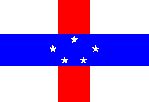 |
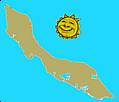 |
 |
| politics | geography climate |
economy |
 Traffic tips The one thing that's different from most places is that, on a "T-crossing", traffic on the through road has right of way. However, on a roundabout, traffic arriving on it has right of way; but all roundabouts are not created equal... take care. Especially as you find them in the weirdest unexpected places, like in a four-lane highway. We drive on the right; at least, most of us do so most of the time. When you go over the top of a hill, if you run into a guy there from the other direction in the process of overtaking, don't be too surprised - if you still have time to be. The same applies to the bridge over the harbor entrance, where there's a minimum speed of 40kms/hr. Except for tourist buses, but naturally! they crawl over it at a leisurely speed to enable everybody to snap pictures, and if you don't watch it you smack right into them, as you can't see what's happening over the top. Another scandal, that. Those little boxes at traffic lights that, in other countries, contain cameras to snap your picture when you drive through a red light, are empty here. Don't worry about them. Better worry about those other drivers who don't worry about the lights. (This may change in 2015). You may not turn right at a red light. Watch those slippery roads after rain! We have such long dry spells that, once rain comes down (and that can be quite heavy, too) the deposits of oil and rubber on the asphalt mix with water to turn into a jelly-like emulsion right after the first drops. Extremely dangerous. You will notice all traffic slowing down as soon as that rain starts falling. Many drivers don't have a driving license or insurance so better take out a good policy when renting a car. Watch out! There are many bad drivers with even worse driving habits. When they turn off the road, they first hit the brakes, only then use their blinker. If they use 'em at all - 90% never do. Except at certain points where there has been a police-trap, many years ago. When they make a turn to the left, they will first come over to the right. It's actually legal to overtake vehicles on the right-hand side; but you may not use the roadside to pass a car that's waiting to turn left. 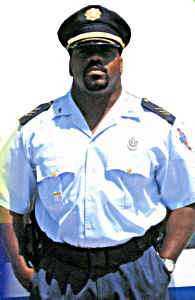 Friendly, courteous and helpful Curaçao Cop from the Officiële Eilandgids 2002 ("Official Island Guide") easily distinguishable from a hoodlum by the uniform Then, except at two or three crossings, our traffic flows along much smoother when those lights are out of service. Matter of fact, somebody seems to have taken this hint and now at some crossings traffic lights are switched off in rush hours. 2 or 3 other crossings really could use lights; but there, they're not installed. |
| Watch Their Language The local language is Papiamentu. Be warned that the police, even their spokesmen, are not ready, able, prepared or willing to speak any other language. Too bad if you speak Dutch, English or, God forbid, Haïtian Patois. Not so smart if you want to promote tourism? But it's hard to understand the mentality of those in power. |
for money we use the Antillean Guilder
US$1.00=ANG1.78/ANG1.00=US$0.56
Currency Converter by OANDA

Curaçao Island live in real time
SEARCH this site or the Web

copyright notice
all material on this site, except where noted
copyright © by , curaçao
reproduction in any form for any purpose is prohibited
without prior consent in writing